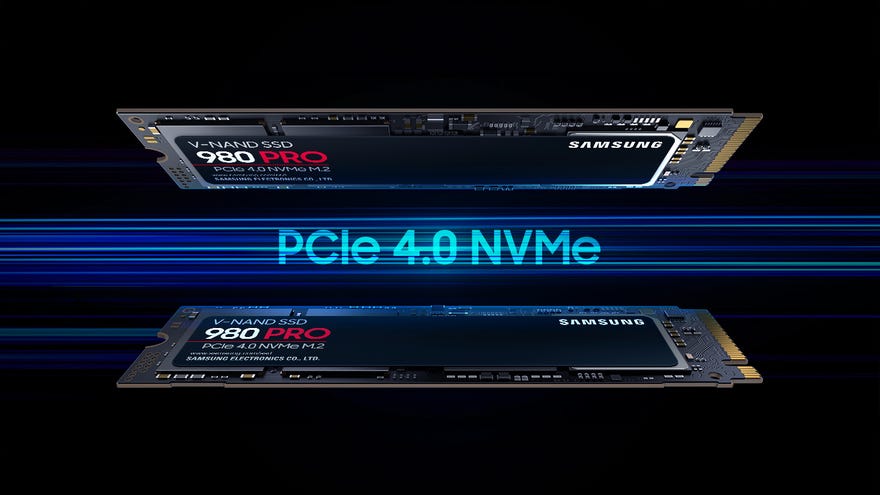Samsung's excellent 980 Pro SSD is available at £94 for 2TB
Or £52 for 1TB, a great price for one of the fastest gaming SSDs.
Samsung's 980 Pro NVMe SSD may not be quite as fast as the later 990 Pro, but it's still an incredibly rapid option that's often available at a more reasonable price. Samsung is currently running a money-back promotion that brings this high-end PCIe 4.0 drive down to an attractively low price in both 1TB and 2TB varieties.
You can get £30 back on the 2TB size, bringing the price to £94, while the 1TB size offers £20 back, resulting in a final price of £52. (This cashback offer runs until 9th October 2023, for the record; see their site for more info.) These are great deals and well worth considering if you want to upgrade your PC (or even PS5) with one of the fastest SSDs on the market.
Get the 2TB Samsung 980 Pro NVMe SSD - £94 after £30 cashback
Get the 1TB Samsung 980 Pro NVMe SSD - £52 after £20 cashback
The 980 Pro is a PCIe 4.0 drive that uses TLC NAND flash and comes with a DRAM cache, allowing to hit some pretty impressive performance targets - and making it well-suited to being your primary OS drive. You could also use it as a secondary drive to add more game, program or media storage to your computer, and it'll work just as well in PCIe 4.0 compatible laptops as desktop PCs.
The 980 Pro meets Sony's PS5 recommended specs, so you could also add a cheap NVMe heatsink to use it in the console.
In terms of sequential speeds, the 980 Pro 2TB is rated at up to 7000MB/s reads and 5100MB/s writes; random figures are also impressive at up to 1M IOPS for both reads and writes. The 2TB model also carries a five-year warranty and is rated for up to 1200TBW written, about average to good for a drive of this capacity.
Overall then, a great gaming SSD that we have recommended many times before, and well worth picking up at this reduced price.
If you do get this one, do remember to install Samsung's SSD Magician software to optimise its speeds and update the firmware if needed - though most drives should come with a recent firmware anyway, this could still be useful in the future.

